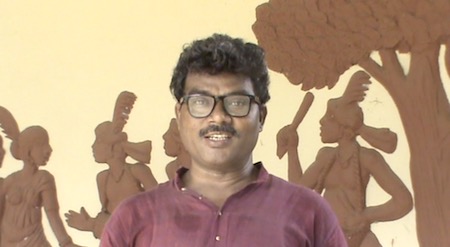A sustainable improvement in the quality would happen only when there is an effort to improve quality along with inclusion. This cannot be achieved by creating a few centers of excellence. | Read the full blog here >>
An improvement would happen only when the current set of teachers (whatever be their limitations) are empowered to teach the majority of their students in a way that they get a proper sense of what they are taught. This is not a difficult task.
In my view, the majority of students in any cohort would be able to assimilate quality education if an appropriate pedagogy is attempted. Such a desirable change should happen to the 90 percent of college and school teachers and their students in the country. That is an enormous task but has to be accomplished with perseverance. […]
Source: Prof. V. Santhakumar, Azim Premji University in: “Only small, consistent steps can improve the quality of education in India” (Economics in Action, 11 October 2019)
URL: https://vsanthakumar.wordpress.com/2019/11/01/only-small-consistent-steps-can-improve-the-quality-of-education-in-india/
Date visited: 1 January 2020
The need to think about the education of Adivasi Children
V. Santhakumar
Adivasies constitute nearly 9 percent of Indian population. Their under-achievements in education are alarming for those who are concerned about this issue. […] Nearly 50 percent of children from this social group drop out while transitioning from primary to secondary grades (based on the educational status recorded in the census in 2011). Nearly 80 percent of them stop education when they are in grade 10 or only 20 percent appear for the high-school examination. […] Their situation is worse off in terms of not only education but also economic status.| Learn more >>
[Bold typeface added above for emphasis]

Up-to-date reports by Indian journalists and commentators
To search Indian periodicals, magazines, web portals and other sources safely, click here. To find an Indian PhD thesis on a particular tribal community, region and related issues, click here >>
Search tips
Combine the name of any particular state, language or region with that of any tribal (Adivasi) community.
Add keywords of special interest (music, poetry, dance just as health, sacred grove and biodiversity); learn about the rights of Scheduled Tribes such as the “Forest Rights Act” (FRA); and the United Nations “Declaration on the Rights of Indigenous Peoples”, “Universal Declaration of Human Rights”, “women’s rights”, or “children’s right to education”.
Specify any other issue or news item you want to learn more about (biodiversity, bonded labour and human trafficking, climate change, ecology, economic development, ethnobotany, ethnomedicine, global warming, hunter-gatherers in a particular region or state, prevention of rural poverty, water access).
For official figures include “scheduled tribe ST” along with a union state or region: e.g. “Chhattisgarh ST community”, “Himalayan tribe”, “Scheduled tribe Tamil Nadu census”, “ST Kerala census”, “Particularly Vulnerable Tribal Group Jharkhand”, “PVTG Rajasthan”, “Adivasi ST Kerala”, “Adibasi ST West Bengal” etc.
In case the Google Custom Search window is not displayed here try the following: (1) toggle between “Reader” and regular viewing; (2) in your browser’s Security settings select “Enable JavaScript” | More tips >>
Note: hyperlinks and quotes are meant for fact-checking and information purposes only | Disclaimer >>
See also
Appropriate education for Adivasi children – the Vidyodaya School model at Gudalur
Books on tribal culture and related resources | Indian publishers
Childhood | Childrens rights: UNICEF India | Safe search
eBook | Background guide for education
eBook | “Where the mind is without fear”: Tagore, Gitanjali and the Nobel Prize
Education and literacy | Lecture “A View of Higher Education in India”
Endangered language | Multi-lingual education
Health and nutrition | Recommendations by the Expert Committee
Particularly vulnerable tribal group
Santali education | Teaching Santal children by Boro Baski
Search select websites: Govt. of India, NGOs and international organisations – Custom search engine